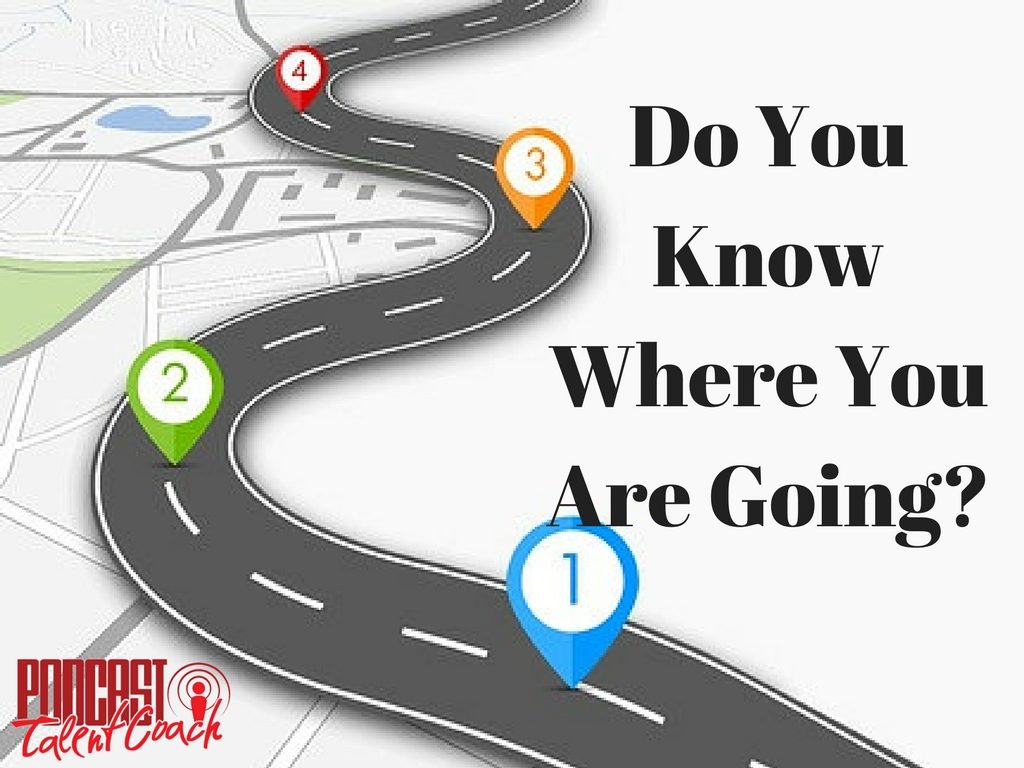Podcast: Play in new window | Download
Subscribe:
What does success look like for you over the next 12 months? Have you broken your goals down to specific steps? Start to take steps toward reaching your goals.
Now, this episode isn’t all about setting goals. We are not going to talk about SMART goals and the five goal-setting steps. You know your goals need to be Specific, Measurable, Attainable, Relevant and Time bound. It is also wise to write them down and create an action plan. You can find that information anywhere.
GOALS
What I want to talk about today are the specific actions you can start to take that will get you to your goals.
I was in a coaching session with my business coach the other day. We were talking about where I want the business to go. We were discussing my goals for the next year.
As we talked about my goals for 2020, I realized I don’t need as many coaching clients as I thought. As we worked out the numbers and the structure of the business and what I can offer, I really only need a few great clients to reach my goals.
I can continue to help as many podcasters as possible with my podcast and free worksheets. I can continue to offer my Dollars and Downloads course for those not yet ready for coaching. A few of the right clients will help me reach my goals for 2020.
At that point, my coach and I broke down the year in terms of the number of new clients I would need to find, how many products I would need to sell and what I would need to create to reach the goal.
Have you translated your financial goals into number of business transactions that would need to happen this year. You cannot possibly begin taking steps toward your financial goals without defining those steps.
My coach and I worked together to put the money on paper in terms of business action steps and clients.
KEY PERFORMANCE INDICATORS
When I was getting my MBA, we learned a lot about the Key Performance Indicators (KPIs) that drive businesses. There are a few indicators that will help you determine exactly what will drive your business.
A KPI is defined as a quantifiable measure used to evaluate the success of an organization, employee, etc. in meeting objectives for performance.
They are the quantifiable, outcome-based statements you’ll use to measure if you’re on track to meet your goals or objectives.
KPIs are not the overall goal of earning a specific amount of money. They are the steps you can control to help you reach those goals.
For instance, I know that 2 out of every 3 people I help during a free podcast strategy call will turn into a client. They recognize the value of the help I provide and they are at a point in their journey where coaching makes sense.
Therefore, if I know how many active clients I need each month, I can then determine how many free strategy calls I need to complete each month as well.
To gain strategy calls, I need to connect with people. If I can determine which actions attract strategy calls, I can then determine how much action I need to take.
Let’s say I average two strategy calls every time I am a guest on a podcast. I can then work back to figure out how many podcasts appearances I need to make in order to get hit my number.
Those are key performance indicators. It is all about taking the right action. Start using them to reach your goals.
IDEAL CLIENTS
My coach and I determined how many free strategy sessions I need to conduct to find the ideal clients that get the most benefit from my coaching.
Ideal clients are key. Not every podcaster is the right fit for my coaching. There are specific podcasters that can truly use my coaching to really improve their podcast and business.
There are some podcasters that benefit greatly from my coaching. They have a fantastic business helping their clients. They use their podcast to attract new clients and build their authority in the space.
On the other side, there are many podcasters I help with my free strategy session that are not a great fit for my coaching program. Those podcasters get a great deal of benefit from the session by defining their strategy and improving their show. Their show simply isn’t at the level where it can support coaching.
It is just fine that these podcasters aren’t ready. They will eventually be in a place where they are ready to start. We just work together to figure out where they are today.
PARTNER
That is the benefit of having a coach or accountability partner. An outside perspective can ask the questions you don’t see, because you are too close to the situation.
If you would like to see where you are, check out my free strategy session online at PodcastTalentCoach.com/coaching. You can get the details and schedule your free session right there.
You need to take time this week to not only set your goals, but truly define the areas that will really move the needle for you. Define the Key Performance Indicators that will move your podcast and business toward your goals.
Looking back at my process, the most productive week I ever had occurred when I was specific about the very next steps I needed to take. Then I put them in writing to help me start.
That week, I accomplished more than I had in the previous 2 months. It was all because I determined what actions would make a difference, I wrote them down, and then did the very next thing on the list. Focus and start.
YOUR KPIs
As you develop your KPIs, you should have around six. That number will vary depending on the size and scope of your business.
There are four characteristics of every key performance indicator. The should be
- Measurable
- with a target
- from a source
- and a reporting frequency
Your KPI must be able to be measured. “Be better at returning calls” isn’t specifically measurable. 10 clients is measurable.
It should have a target. 10 calls each week has a target with respect to number and time.
A good KPI has a source. You know exactly where they data will come from and how it is measure. “Connect with 10 clients each week” doesn’t have a clear source. You don’t really know what that means.
When your KPI is “10 face-to-face meetings with clients each week”, you know exactly how to measure that KPI. You know the source of the data.
Finally, you need a reporting frequency. It does you no good to set a KPI if you don’t plan to review your progress on a weekly or monthly basis. Inspect what you expect.
EXAMPLES
There are various examples of strong KPIs.
With regard to sales, you might measure the number of qualified leads in your sales funnel.
A customer KPI could be the number of clients that renew each month.
Marketing KPIs could be monthly website visits or Facebook posts each week.
You need to track these KPIs over months. As you start, these will adjust quite a bit. You won’t know what has impact on the results until you track it.
I know that 2 out of every 3 calls result in a client, because I tracked it over time. The results of a few months gave me an indication of that cause and effect.
Take time to begin tracking your results. If you post a call-to-action on Facebook once a day, what does that do for your results? When you bump it up to twice a day, is there any effect on the results?
Determine what your next steps need to be. Then, start by working backwards.
START WITH FIVE YEAR GOALS
Where do you want to be in five years? Define your long-term goals first.
Use the SMART method to get clear. You might consider creating realistic goals along with some stretch goals.
Five years is a long time. You can get a lot done in 1,825 days.
Many of us overestimate what we can do in one year, but underestimate what we can do in five. Think big.
How much do you want to be earning? What do you want your work life to look like? What does your family look like? How does your health look? Where are you in your spiritual walk?
GOALS NEXT YEAR
Next, where do you want to be next year? Be clear on the goals and lay in some stretch goals.
If you want to make $24k over the next year, $2,000 a month could be realistic. Maybe $8,000 a month is possible if a few key things happen. That would take you to $100k next year. That would be a nice stretch goal.
Just like the saying says, “Shoot for the moon. Even if you miss, you’ll land among the stars.” It has been credited to Norman Vincent Peale. I’ve heard the great Les Brown say it. Regardless of where it originated, there is truth in it.
Shoot for your stretch goal. You may just outperform your realistic number.
QUARTERLY GOALS
Now, let’s break the yearly goal into four parts. What do you need to accomplish in each quarter of the next 12 months to get you to your yearly goal?
You eat an elephant one bite at a time. Break your yearly goal into quarterly milestones. Be clear and specific. “Get more clients” is not a goal. How many do you need. If you need 24 over the year, can you land 6 per quarter or one every other week?
As you break your goal into smaller steps, you will see if your goals are feasible with the tools and time you currently have. You may find that you need to add help or give up something in order to make the goals happen.
WEEKLY GOALS
Next, we take the quarterly goals and break those into week-by-week goals. You have 13 weeks in the quarter. What needs to happen every week to make the goals a reality?
Be sure to build in some “catch up” time. Again, we overestimate what we can accomplish in a short time. The shorter the time, the more we miss the estimate. Build in time to catch up each week.
THIS WEEK
Now that you have your weekly goals, what are the things that need to be completed this week? Create the task list and start.
TODAY
Take a look at this week. What are your objectives today? What is the next most important step? Start there.
REVIEW
Review each step of the way. Are your goals realistic? Can you really put in that much time everyday, every week and every month to make your goals happen?
Review your KPIs on a regular basis and adjust where needed. Make sure the key performance indicators are truly indicators. If you adjust them, ensure there is an effect on your results.
CONSISTENT ACTION
Finally, stick with it. Focus. The only way you will achieve your goals is with consistent action. Take steps forward every day.
To help you take those steps, find an accountability partner. Maybe join a mastermind. Hire a coach. Enlist a partner. Whatever it takes to keep you moving forward toward your goals.
Setting goals and writing them down won’t be enough. Focused action on the next step is the key to making your goals a reality. Start and then stay accountable to action.
I’d love to help you. Check out my Free Strategy Session where you and I will sit down for 30 minutes to lay out an action plan for your show and business. Get the details at www.PodcastTalentCoach.com/coaching.
Let’s turn your information into engaging entertainment.






